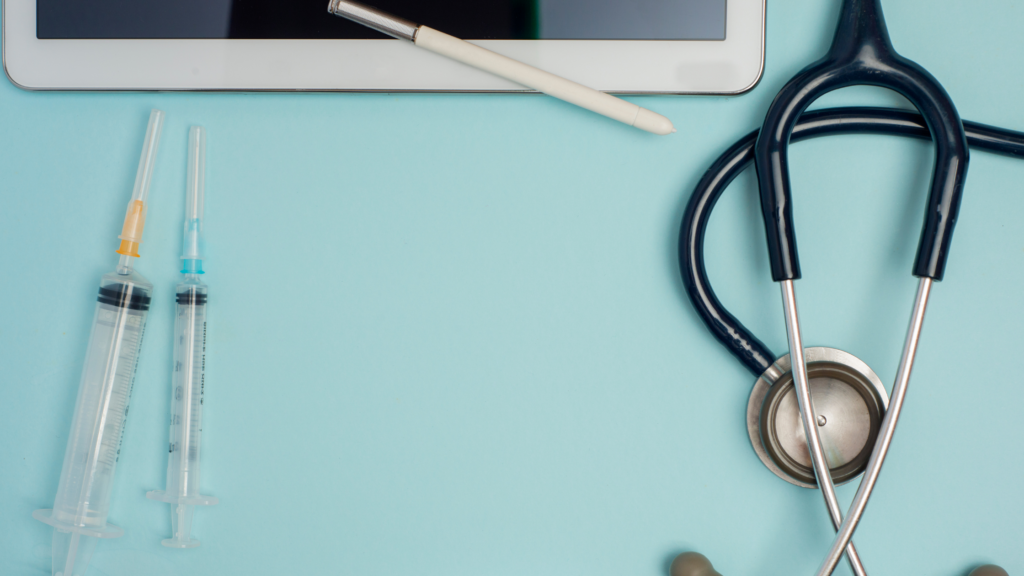Digital Health is a term that comes up often nowadays. The pandemic sent the world scrambling for ways to track the virus and safely connect. But what does ‘digital health’ actually mean?
Is it any technology used for health? Or only certain technologies that do something new and innovative? The answer is yes to both. You can think of digital health as any technology used for health, including new and innovative ones.
Why not just call it ‘health technology’ then? Why add some new words to confuse everyone? Well, ‘digital health’ does sound a bit friendlier. We have heard of digital watches and digital thermometers. And remember when digital picture frames were a thing?
Making it friendlier reminds us that there is an important group involved: consumers, a.k.a people like you and me. Digital health focuses on consumers and making health tools accessible. It also aims to connect consumers to their healthcare providers.
Putting consumers in the middle is the one thing connecting the different technologies under digital health.

What is ‘Digital Health’?
I already said it means the same thing as health technology. But there are more official places trying to define what it means. The Food and Drug Administration (FDA) says digital health includes mobile health, health information technology, wearable devices, telehealth, and personalized medicine.
The Healthcare Information and Management Systems Society (HIMSS) put out a new definition for digital health. The full definition can be found here, but the quick summary is this: Digital health empowers people to manage their own health, and be supported by healthcare providers who use technology to provide care.
There are two key themes here:
- Empowering people to manage their own health.
- Connecting people to clinical teams that help them improve their health.


What technologies are part of Digital Health?
First a disclaimer: The problem with listing all the technologies that can be considered ‘digital health’ is it is meaningless as soon as technology changes. Which is all the time.
With that being said, here are examples of technologies that are considered digital health:
- Remote monitoring tools – think of Fitbits and Apple Watches that can monitor your heart and share information with your cardiologist.
- Telemedicine – the COVID-19 pandemic made video visits a more normal thing for everyone.
- Data analytics and predictive modeling – a recent example is tracking COVID-19 spread and spikes.
- Behavior modification tools for health and wellness – a.k.a. digital therapeutics, this includes things like apps that reduce anxiety and help you get more sleep.
- Electronic health records – most providers stopped using paper charts a few years ago and switched to electronic records.
- Patient and provider portals – where you can check lab results and notes from your last doctor’s visit.
- Decision support systems – an example is AI helping providers diagnose, prescribe, and even make decisions about what tests are needed.

All major technology companies now have digital health products.
Google is in the process of buying FitBit which will help them stake their claim with wearable devices. Google is also working on artificial intelligence for healthcare in their DeepMind unit.
The parent company of Google, Alphabet, also owns Verily which is focused on combining healthcare, data science, and technology.
Apple is working to expand its product that connect patients and providers. Recently the Apple Watch added more health features, like the ability to detect if a person fell. They added the Health Records feature so the electronic health records providers keep can connect to the Health app.
Apple also created ResearchKit and CareKit as tools care providers and researchers could use to develop apps. These apps can support clinical studies and sharing progress towards a health goal.
Amazon famously launched Haven, a joint venture with Berkshire Hathaway and JP Morgan Chase. The goal is to create a better approach to healthcare. This includes making primary care easier to access, simplifying insurance, and making prescriptions more affordable. They are starting with their own employees and plan to expand to others over time.
You may also have heard of Amazon buying PillPack – a pharmacy delivery company. They also recently announced they are offering home delivery of medications.

How can Digital Health help you?
With all the Digital Health technologies out there, the benefits to you are also pretty wide. Much of how it will help you depends on what type of technology we are talking about.
Digital health technology helps you get more information about your health has benefits like:
- Giving you new ways to monitor your health.
- Providing a full view of your health, which empowers you to make more informed decisions.
- Helping you to set health and wellness goals, and keep track of your progress.
Digital health technology that allows you to share information with your provider helps to:
- Reduce inefficiency from having to track down information manually.
- Increase quality of your care since your provider will have a more complete picture of what you need.
- Give you more accurate diagnoses and treatment since there is less chance of missing something important.


How can Digital Health improve healthcare?
There are bigger goals that many people hope digital health will lead to.
Digital health tools detecting new illness or if an existing illness is getting worse became important in 2020. Fitbits were able to detect breathing and heart rate changes from COVID-19 infection before a person started showing symptoms.
There is also the idea that digital health can help a person reduce their healthcare costs over their lifetime. However, that depends on the person taking action on the information they are given. Wearing a Fitbit will not magically make you healthier – you still have to do the work.
The biggest hope for benefits from digital health is really its potential to change the healthcare system. Thinking about healthcare’s biggest pain points, many are focusing on how technology can completely transform them:
Getting appointments: Telehealth and remote monitoring tools are just the start of using technology to make healthcare easier to access.
Connecting information: Instead of asking patients to fill out the same basic information for every visit, connecting providers, pharmacies, urgent care, and hospitals through a health information exchange would make sure everyone has access to the same data.
Providing more personalized care: Healthcare used to be very personalized. For many reasons, healthcare became much more like a factory with consumers being treated like a number. But as we gather more of our own health information, healthcare could become personalized again.
These ideas all sound great. So, why have we not seen the benefits yet?


Why Digital Health has not lived up to its potential:
Think about other industries that went through a digital transformation, like travel or banking. Would you say it got easier to book trips and manage your bank account now that you can do it online?
Most of us would say, Yes, absolutely! Can you even remember the last time you went to your bank in person? Do you even know where your nearest travel agency is?
Ok, here is another question: has healthcare gotten easier now that we have digital health? Most of us would say, ‘No, not really.’ Why? Well, the answer is complicated.
Reason #1: The digital health industry is still fairly new.
Even though many of the technologies, like mobile apps and video calls, have been around for years, they did not get adopted right away. Healthcare has been slow to take advantage of new digital tools.
Regulation is part of the issue. Getting approval for new technology from organizations like the Food and Drug Administration (FDA) can take a long time. The FDA has been working to speed things up recently – check out their Digital Health Center of Excellence.
Reason #2: There are multiple customers who have to buy in.
Unlike with travel where you – the person who wants to go to the Bahamas – are the customer travel companies need to please, in healthcare customers include:
- Patients
- Nurses
- Doctors
- Therapists
- Counselors
- Insurance companies
- Hospitals
- Clinics
That is a lot of different people to please! And each of them has their own concerns and priorities. Connected to this is how compensation in healthcare works versus other industries. Which leads us to our next reason.
Reason #3: Payment is murky.
A credit card company benefits directly from you adding their card to your digital wallet. But providers do not get compensated for prescribing digital health technologies. Also, many technologies have not proven their health benefits, so insurance companies may not cover them.
Reason #4: The ‘Worried Well’ – people using digital health are already healthy.
Another reason is people who use things like a Fitbit or health app are already healthy. Called ‘the worried well,’ these are people in their 20s-40s who have disposable income and no major health issues. They are not part of the population that ends up costing the most for their care.
There are no real savings from them using digital health tools.
Reason #5: Privacy and security of health information.
Finally, many people hesitate to use digital technologies for their health because of privacy and security concerns. The number of cyber attacks in healthcare went up 50% this year because of the pandemic, and they made headlines.
However, despite all of this, I believe digital health is on an upswing that will not stop. The pandemic made patients and providers more willing to try new technologies for care. Half the battle is just getting people to try something new.

Where Digital Health is going in the future:
As digital health becomes part of our new, post-pandemic normal, there are several key trends we can expect to see:
Trend #1: Different types of people will start using digital health tools, especially seniors.
Even my in-laws do not use travel agencies anymore, but it took a while to get them to try booking trips online. This year they had their first telehealth visit. I can see the next several years converting different types of people into digital health technology users, especially people over the age of 65.
Many will not want to give up the convenience of having symptoms checked at home, or filling prescriptions through an app.
Trend #2: Wearables, mobile apps, and connected devices will be part of routine care.
Providers will start encouraging use of wearables – things you wear that monitor your health, like Fitbit – for routine care. Now that devices like the AppleWatch can check heart rate and EKG, these will become part of the cardiologist’s toolbox.
Mobile apps that coach people through behavior changes to manage their conditions will become the norm. With the rise of virtual therapy, we will see more use of apps that help with anxiety, sleep, and depression.
Providers will also take advantage of connected medical devices – such as blood pressure cuffs and blood glucose monitors – that send information to the patient’s care team. Providers will not have to rely on the patient keeping accurate records of these readings. Instead they will get information from the device itself.

Trend #3: Virtual health communities will be the new support groups.
The days of support groups in the basements of churches will come to an end. Instead, people will connect online with others who are trying to stick to lifestyle changes to manage their conditions.
These sorts of virtual communities will become more formal and many digital health device-makers will even build a community to go with their device.
Trend #4: Research miracles will happen more often.
Part of why the pandemic’s vaccine was developed in record time is because of the technology available now. With AI and more computing power than existed in the past, discovery of information about this virus was done faster than ever before.
With more people around the world engaging with digital health, more health information will be available online for researchers to use. This could lead to these types research miracles happening more frequently.

Key Takeaways:
The easiest way to think of ‘digital health’ is as any technology used for health, including new and innovative ones, with consumers at the center.
It is hard to say which specific technologies are part of digital health since technology is always changing. But some examples include:
- Remote monitoring tools – products like Fitbits and Apple Watches.
- Telemedicine – this includes video visits.
- Electronic health records
- Decision support systems – using AI to help providers make diagnoses and prescribe medications.
Digital health should help us with things like:
- Monitoring our health and helping us set our own health goals.
- Giving our providers are more complete picture of our health so they can provide the best care.
- Making it easier to get access to care since we can set up virtual appointments instead of going in person.
But digital health has yet to live up to its potential. The healthcare industry is still fairly new to using digital health tools and was slow to adopt them. There are also several issues to overcome, like payment and how to make sure information is secure.
However, the pandemic in 2020 caused many people – patients and providers – to try digital health as an alternative to in person care. For this reason, digital health seems to be here to stay. We can expect to see digital health tools becoming a routine part of care for a wide variety of people.






0 Comments